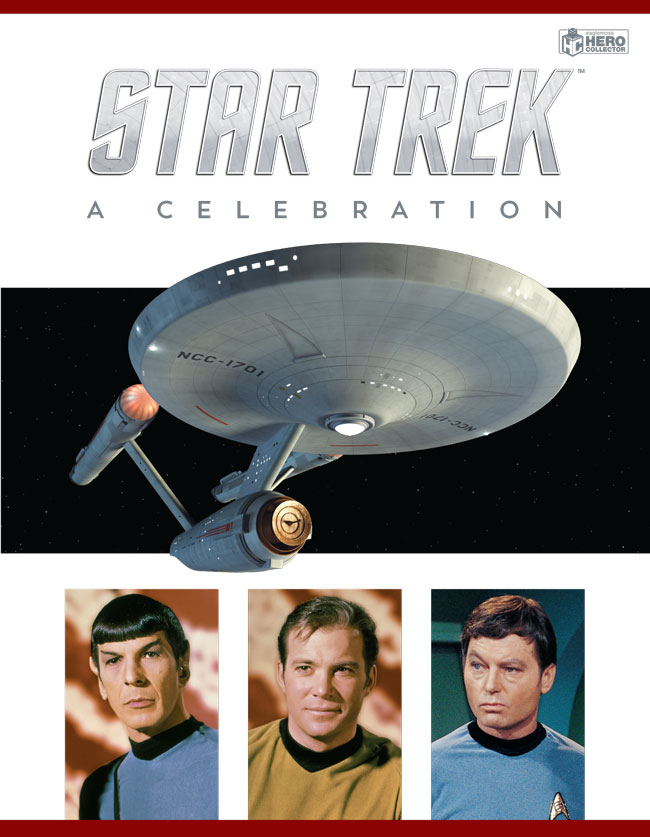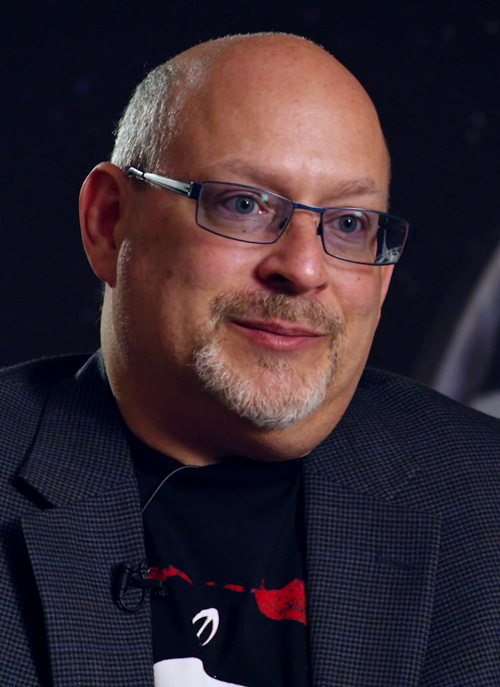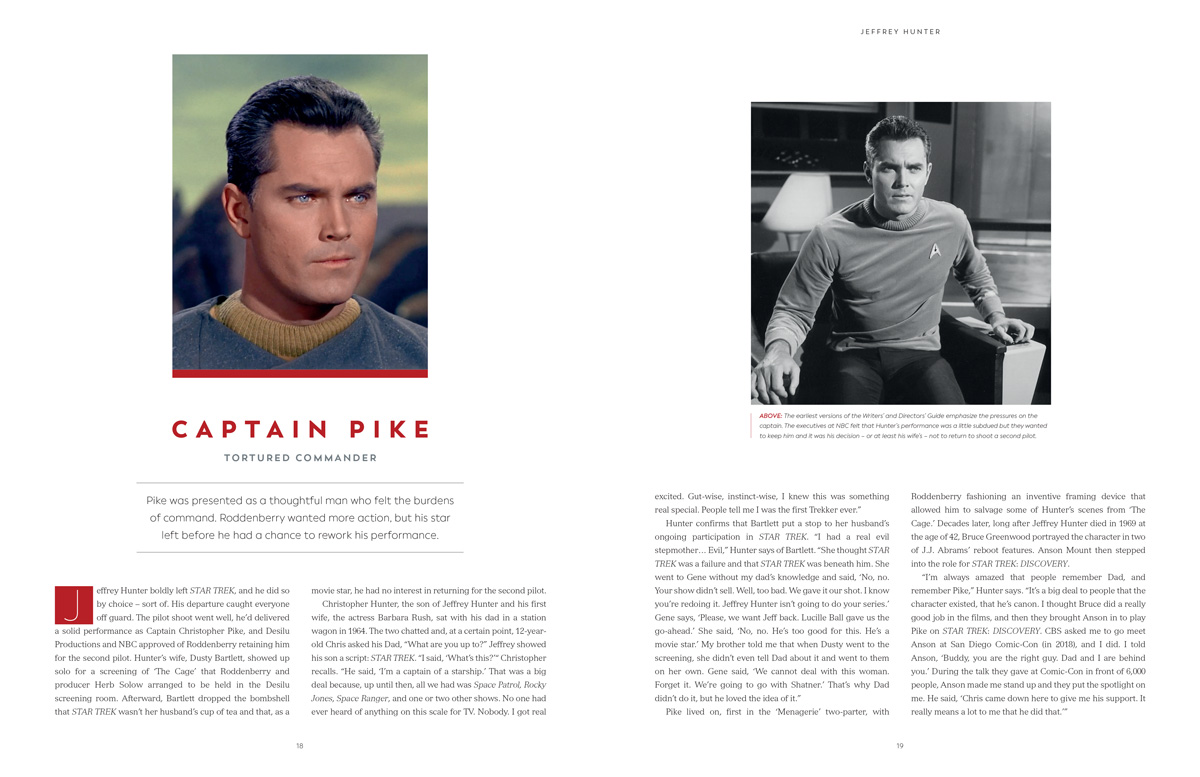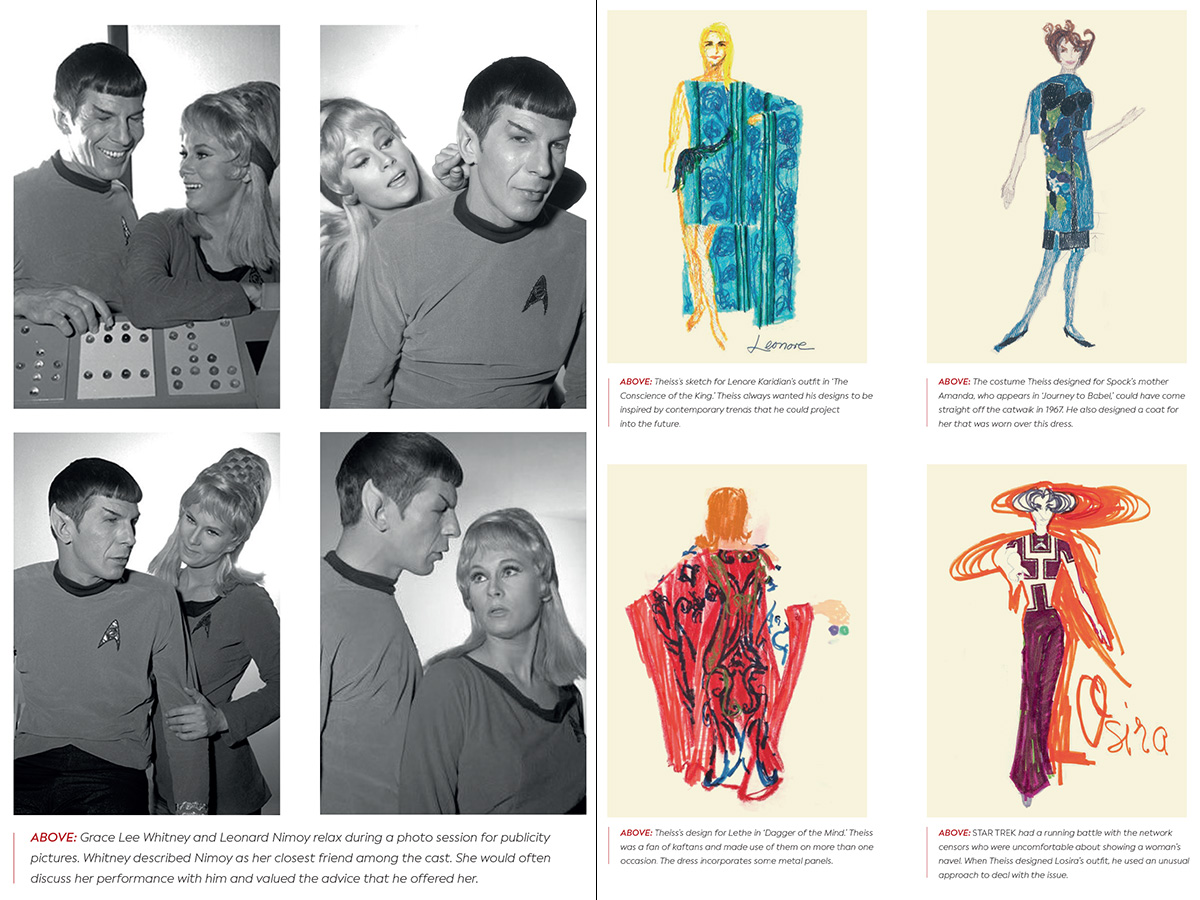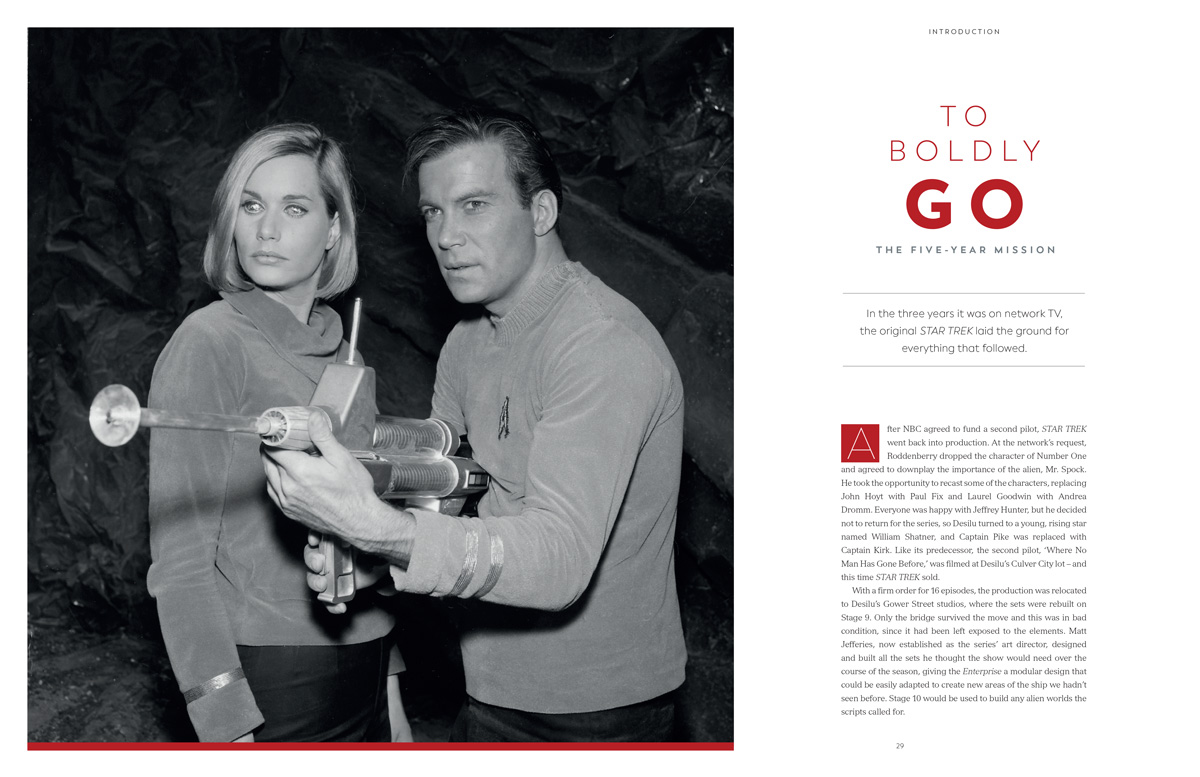This week, Hero Collector releases the second in their new Star Trek: A Celebration line-up, as authors Ben Robinson and Ian Spelling this time head back to where it all began: the classic Original Series.
While Ben Robinson has held author or co-author title on a great number of Hero Collectors’ Star Trek reference works, Ian Spelling joins him for the first time on Star Trek: The Original Series — A Celebration.
A familiar name to many Star Trek fans, Spelling has been covering the franchise for numerous press outlets dating back decades, including many incarnations of official Star Trek magazines, later serving for many years as lead editor of the official StarTrek.com website, and is often seen on-stage at Creation Entertainment’s Las Vegas Star Trek convention.
Following the success of last year’s Star Trek: Voyager — A Celebration, Hero Collector’s retrospective series now turns to the era of Captain Kirk and Mr. Spock, and we had an opportunity to speak with Spelling about his long association with the Star Trek franchise, his experience writing the book, and what fans can expect to see in this new publication.
* * * * *
TREKCORE: How did you first get started covering Star Trek as a journalist?
IAN SPELLING: I started watching Trek as a kid, as a teenager back on Long Island — I always loved and appreciated the show, and found everything about it interesting and challenging. I liked the humor and the relationships, and [“The Devil in the Dark”] scared the crap out of me!
The Original Series will always be one of my favorite shows, and when I was in college, I thought I would try to see if I could land interviews with Walter Koenig, George Takei, Mark Lenard, Nichelle Nichols, and whoever else might be at the New York or New Jersey conventions near me — because in the old days, the actors used to stay at the hotels hosting the conventions.
I called up and asked for George, and they just put me right through to his room! “Do you jog?” he asked, and of course I lied and said yes, and so he invited me to go running with him. I kept up for a mile and a half before I to stop and catch my breath, while he ran three more — he caught me on the way back, and then we ran all the way back to the hotel to do the interview.
Interviews with Gene Roddenberry and Majel Barrett-Roddenberry were some of the earliest pieces I ever sold to Starlog. Mark Lenard sat with me at a convention; Jimmy Doohan talked to me, this college kid. Walter Koenig and his daughter met me at a diner for an interview; it was just remarkable.
This was my first foot in the door to real journalism, and it paved the way for everything that followed; first to Starlog and then the official Star Trek magazines — which allowed me to visit the sets and talk to lots of different people — and later the Titan magazines.
That all led to me editing the official Star Trek website from 2010 through 2019, which was the best gig ever. After all of that, I connected with Ben Robinson at Eaglemoss and their books division, Hero Collector — and while we were promoting the Voyager book, Ben asked me if I’d write the Original Series book with him.
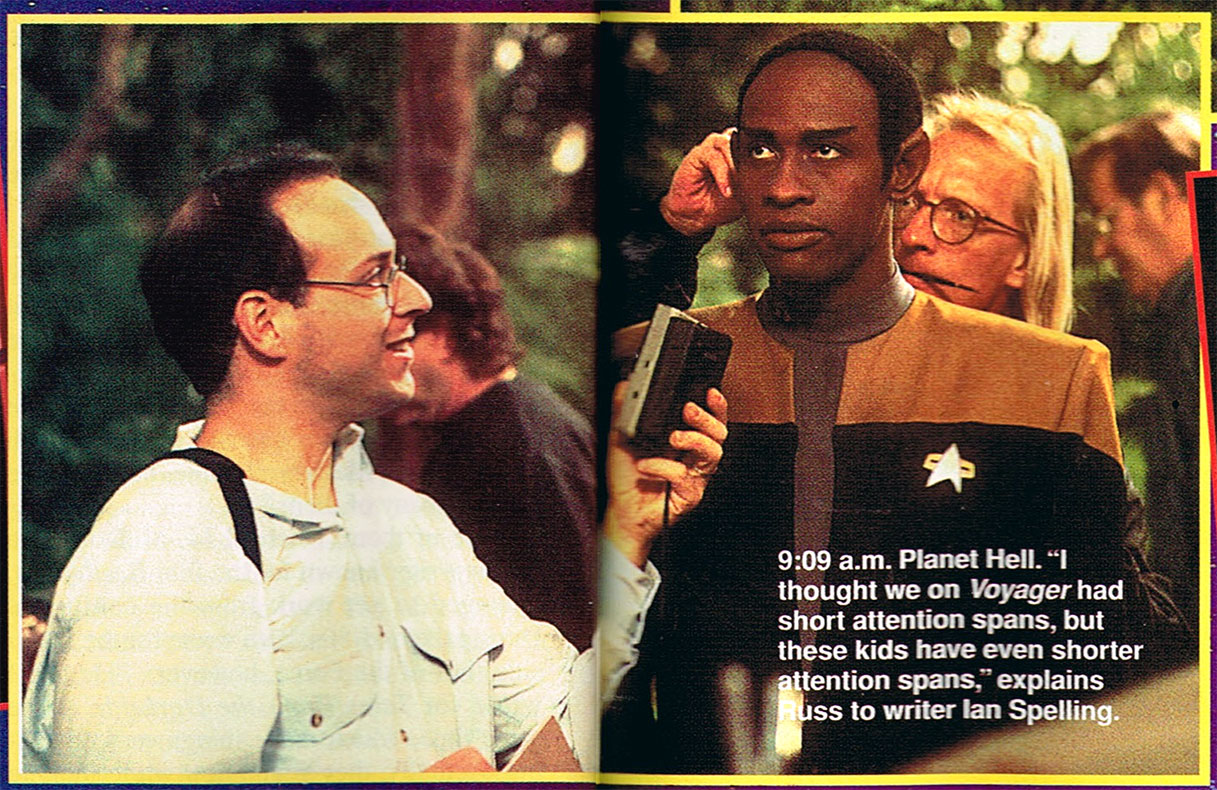
TREKCORE: There’s been decades of books written about classic Trek — how did you approach this project, in terms of finding a fresh take on the Original Series?
SPELLING: It was a challenge, to be honest. I mean, if your favorite color is blue, there’s only so many ways to explain why that’s your favorite color, right?
Ben and I had that conversation before we began; he wanted it to be like a living Star Trek convention but in book form. That was the case with the Voyager Celebration book too, a convention on a page.
You’re right that there have been a lot of books about the Original Series — books about the characters, memoirs by the actors, books about designs, collections of photography, and a lot more — but there wasn’t one book that brought it all together. With Celebration, you get the full spectrum of what it took to make the Original Series, the context for all those things.
We also wanted to focus on what the show means to people, so there’s a section on conventions and on the mail campaign to save the show from cancellation — we made sure there was space for that, along with everything else. The goal was to create a book that had some of everything, all in one place.
Part of my concept for things was to find a way to not only make it a book that appeals to fans who know the show really well, but also to be a guide for people who are relatively new to the franchise.
TREKCORE: What kind of things are in the book that might be new to longtime fans?
SPELLING: One of the cool things is all the art in the book — there are a lot of photos and some definitely some people have never seen before. I was at the Las Vegas convention this year, and showing the book to George Takei and his husband Brad, who asked me how I had a photo in the book that they had never seen!
A few private collectors out there who got their hands on the photography, and one of those people is James Cawley, who runs the Star Trek Set Tour in New York. I can’t tell you how much he contributed to the book — he was vital to it, really, because he had stories about [classic Trek costume designer] Bill Theiss, a lot of the original art and sketches, many we had never seen before.
We also did a number of new interviews, where we would push deeper into the impact the characters had on people; for people like Leonard Nimoy, DeForest Kelley, and Jimmy Doohan, we tried to find archival interview or memoir material. We did the same for Nichelle Nichols, who is still with us but unfortunately not well enough to do new interviews.
Utilizing archival material is like putting a jigsaw puzzle together, pulling quotes from old interviews or memoirs, but it helps that I know (or knew) all these people and could put it together in a coherent way. I reread both of Walter Koenig’s books, Jimmy Doohan’s and Nichelle’s — but also went all the way back to an interview I did with Mark Lenard almost 30 years ago; I also reached out to family members like Jimmy Doohan’s son Chris where I could.
Despite some of that archival content, there are still likely to be a few stories that people have never heard before, like a tale about Muhammad Ali visiting the original Star Trek set that neither Ben or I had ever heard — all because he wanted to see Nichelle Nichols.
I also wanted to talk to six-time TOS director Ralph Senensky, who has spoken a lot in the past about his Trek experiences — so we focused on why he actually directed “six and a half episodes” instead just of his credited six, and what happened there. At 256 pages, the book covers a lot of ground.
TREKCORE: What was the most surprising thing to you, as you were going through all of this work?
SPELLING: Really, that there were still stories that hadn’t been fully told before!
That, and, well, the reality that Gene Roddenberry was an imperfect guy who happened to create a perfect piece of entertainment. That’s the key thing here — he’s regarded as the Great Bird of the Galaxy and all of that, and had a vision and he created something that people are talking about decades after his death.
There’s nothing else like it on the entertainment landscape, but the reality is, he was creating a television show and he wanted it to make money. He was looking for ways to make money. I think he would be the first to admit he wasn’t a saint, but he was a big thinker.
He had some great ideas for where we could be in the future and that carried throughout. If the show were being made now, would it get the same reaction? Who knows. If Bjo and John Trimble hadn’t pulled off their magic and helped save the show back in the day, I don’t know if you and I would be talking right now.
TREKCORE: The book is arriving just after the franchise’s 55th anniversary — what does Star Trek mean to you?
Star Trek means a lot to me, more than as just a great piece of entertainment. It’s thought provoking, it’s timeless; the stories that they are so strong, and performances are so good, that it all works despite the foam rocks and the matte paintings and everything else. It was the perfect alchemy of writing, acting, and visual effects and somehow it all just clicked — and it keeps getting passed down from generation to generation.
That’s the magic spice that nobody knows, it’s just unlike anything else out there. It’s the unicorn of entertainment.
This interview has been condensed and edited for clarity.
![]()
Star Trek: The Original Series — A Celebration is in stores now. A third entry in the Celebration series, centered around Star Trek: The Next Generation, is currently in development.

